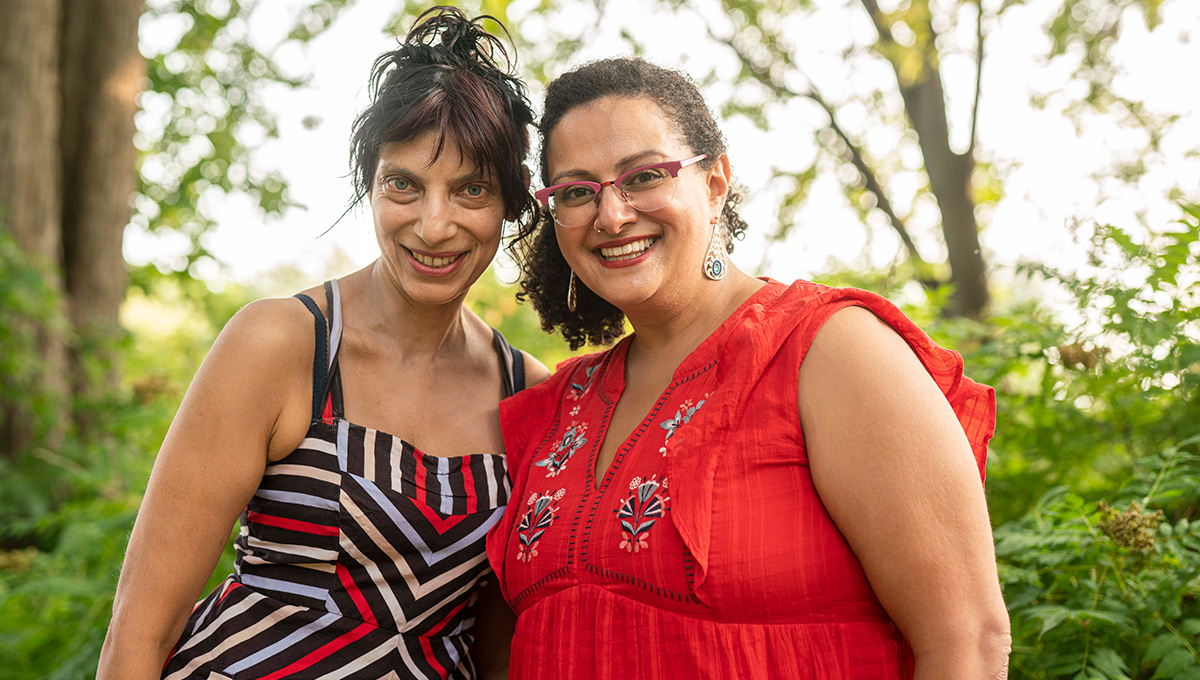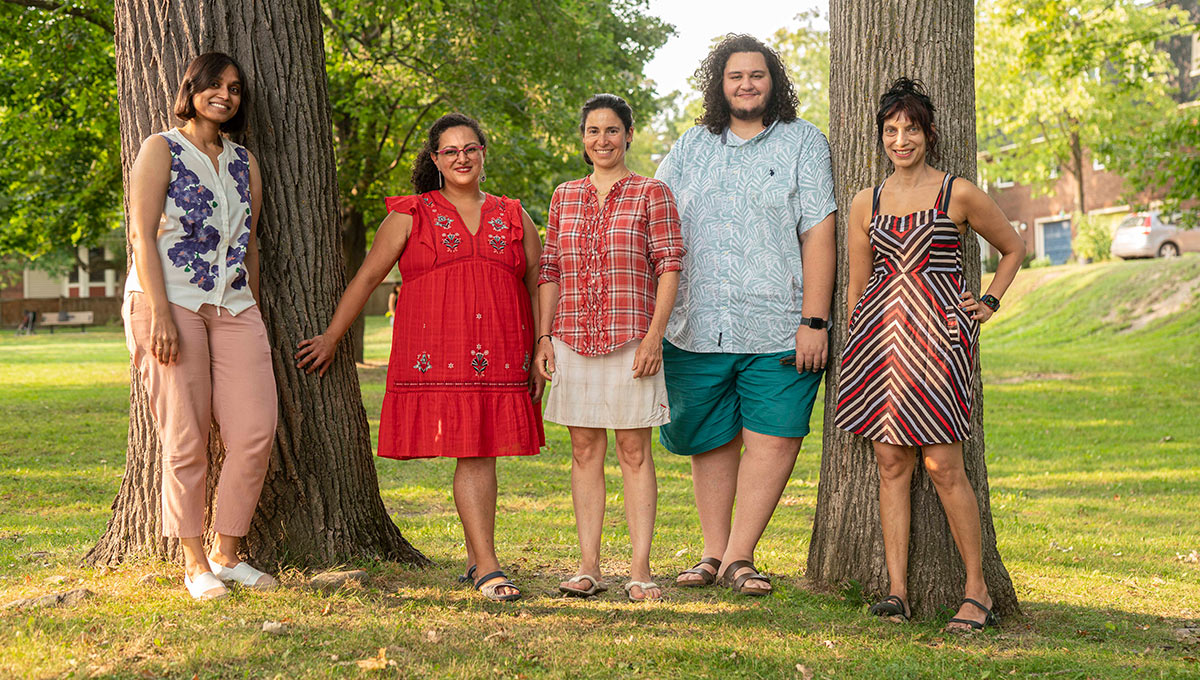The first time that Carleton University’s Racialized and Indigenous Faculty Alliance (RIFA) met on Zoom last February, it was during the thick of the COVID–19 pandemic. Still, there was something special in the air.
The genesis for the group began over coffee and scones. Carleton professors Ummni Khan and Carolyn Ramzy were working together and during a break they struck upon an idea.
By Karen Kelly (See the Carleton Newsroom’s original story)
Photos by Chris Roussakis

Ummni Khan and Carolyn Ramzy
“We were recalling our experiences navigating the challenges of being a faculty member of colour at Carleton,” recalls Khan, who is in Law and Legal Studies. “It was a very validating conversation. So, we thought, why not reach out and create a community where we can all support each other?”
When Ramzy and Khan contacted colleagues with the idea, they were greeted with enthusiasm. As a steering committee came together, the group decided to collectively search and rename themselves as a collective. (Before the group had an official name, it was nominally known on campus as the BIPOC Caucus.)
Two virtual naming workshops and two surveys later, the group chose its current name to ensure that “everyone had a place at the table.”
“Are we a caucus, alliance or network?” asks Ramzy, who is an associate professor in the Department of Sociology and Anthropology. “What do we want to do here? People brought expertise and different perspectives. It was a bonding experience.”
The experience highlighted the challenges of ensuring that all members felt represented in some way. The rich conversations also reflected the broad historical and individual experiences, complexities and intersections of race, racialization and Indigeneity in Canada.
Think Global, Act Local
Global news of the social justice movement following the murder of George Floyd, Black Lives Matter protests, the rise of Anti-Asian and Islamophobic attacks in Canada and the United States, as well as the gut-wrenching confirmation of unmarked graves of Indigenous children at residential schools around the county only highlighted the urgency of this group.
Beyond the university’s commitment to anti-racism and equity on campus, RIFA came together to provide camaraderie and support as Indigenous, Black, and racialized colleagues processed, mourned and mobilized around these events.

A few members of Carleton’s Racialized and Indigenous Faculty Alliance
Today, the group sits at about 60 members from across the university, and it is growing.
It aims to provide solidarity and networking spaces for Black, Indigenous and racialized full-time faculty and instructors; share resources that address systemic racism as well as anti-racist and anti-oppression methodologies in the workplace and in the classroom; promote professional development for early career members, thanks to the generous support from the office of the Vice-President (Research and International), Rafik Goubran; and finally, to create and participate in events and workshops that identify, challenge and discuss issues that impact inequity and inclusion.
This fall, RIFA is participating in this year’s Inclusion Week, hosted by the Department of Equity and Inclusive Communities. It will also be launching an early career research grant award for RIFA members at the end of September.